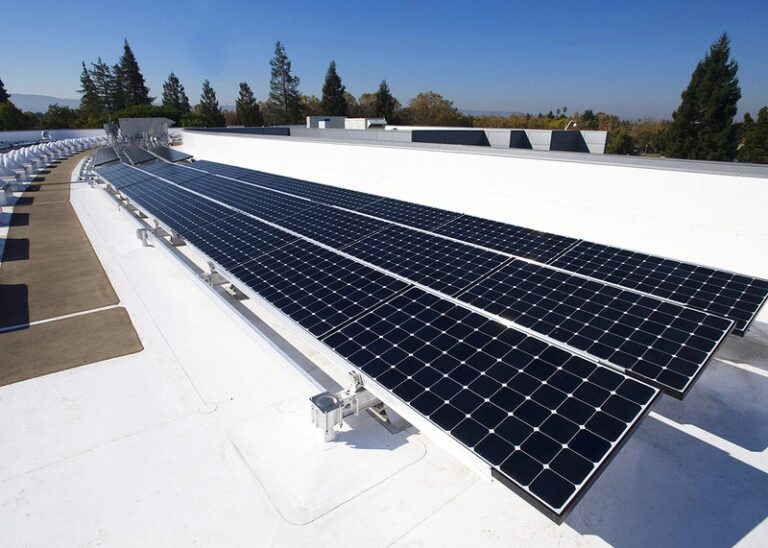Batteries Enable Manufacturer of Plastic Parts to Store Solar Power

Batteries Enable Manufacturer of Plastic Parts to Store Solar Power
Assembly April 2022
By Jim Camillo
It is safe to say that the debate about the environmental impact of plastic will continue. But, it is also a fact that many manufacturers of plastic products are quietly becoming greener.
A good example is Fairfield, IA-based Agri-Industrial Plastics Co. (AIPC), which specializes in the blow molding of large-scale industrial parts. These include fuel tanks for the turf equipment, power sports, agricultural and marine industries.
Founded in 1978, the company operates a 340,000-square-foot advanced manufacturing facility. The plant is equipped with 20 monolayer accumulator-head blow molding machines and seven multilayer continuous extrusion machines. Robotic automation is also present, to complement a clean and modern work environment.
Blow molding is energy intensive and regularly produces electrical peaks at the facility. To better handle the costs associated with these peaks, AIPC installed a unique solar and energy storage system in 2019.
“We run 27 [production] lines 24 hours a day [on weekdays],” says Lori Schaefer-Weaton, president of AIPC. “This [creates] huge utility bills. Some of the [system] payback will be strategic, longer term, by building excitement around working [here] and being part of something bigger.”
The AIPC plant features a 517-kilowatt, roof-mounted solar array that works in tandem with a 430-kilowatt-hour energy storage system composed of two battery-powered Tesla Powerpacks. During the day, the solar panels generate energy, which charges the Powerpacks and powers all manufacturing operations.
Schaefer-Weaton says that AIPC’s energy load is fairly consistent over the course of the year, with peak loads in the 2,500 to 3,000 kilowatt range. Weekend loads can drop to as low as 100 kilowatts, though they are higher when the company runs weekend shifts during busy times.
The primary purpose of the Powerpacks is to help AIPC achieve peak shaving with greater efficiency and reliability. AI-based controls ensure this by automatically charging the Powerpack’s 16 lithium-ion battery pods when electricity rates are at their lowest and discharging energy at times of high usage (or peak demand) to avoid or reduce costly demand charges.
Each Powerpack is modular, scalable and durable enough for outdoor use. It is also AC-coupled, rather than DC-coupled, meaning it operates completely independent of the solar array. This ensures that if the array or energy storage system goes down (for whatever reason), the other part of the installation will continue to operate.
A white paper from developer Ideal Energy estimates that the project will save AIPC an average of $55,000 per year for the foreseeable future. Equally important, it will prevent 9,377 tons of CO2 from entering the atmosphere over the next 25 years. The CO2 number is equivalent to that produced by burning more than 10 million pounds of coal.
As for the hoped-for benefit of attracting forward-thinking employees, Schaefer-Weaton is confident it will come to fruition in the long run. She believes the project shows all of its customers, many of which have green initiatives of their own, that AIPC is planning to be around for many years.
“I consider it a strategic investment for our future,” explains Schaefer-Weaton. “We are in it for the long haul—for our customers, our employees and the community of Fairfield.”


